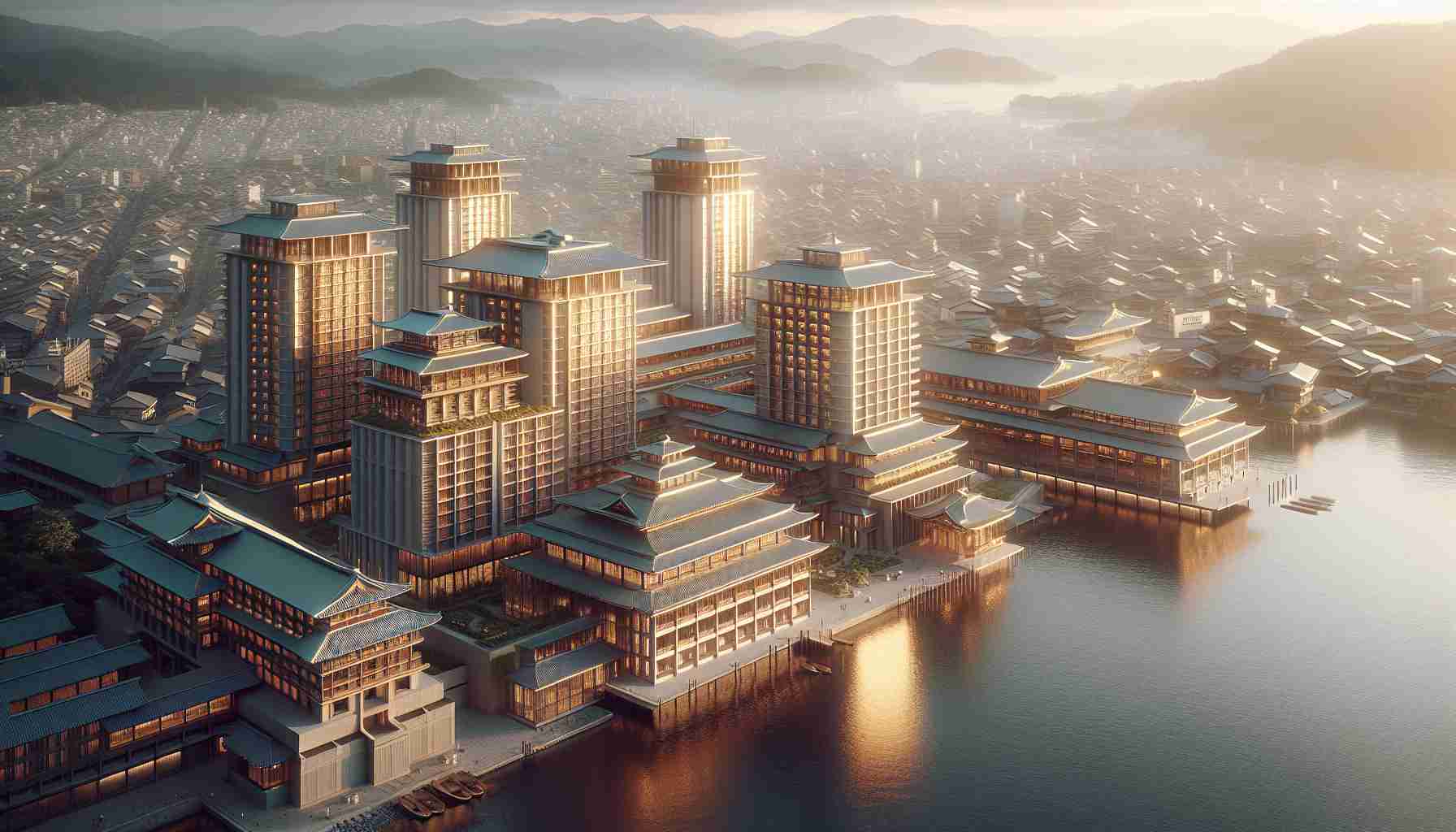Anticipation Builds for the Osaka-Kansai Expo
As Kyoto gears up for the 2025 Osaka-Kansai Expo, the city is witnessing a surge in new hotel openings. This development aligns with the expected influx of visitors and the growing tourism market. One notable addition is a newly launched hotel in Shimogyo Ward, showcasing the city’s commitment to accommodate travelers from around the globe.
International hotel chains are stepping into the Kyoto market, aiming to enhance the hospitality landscape. The strategic expansion includes renovations of existing facilities as well as the introduction of completely new establishments designed to meet modern traveler demands.
With the impending Expo, industry experts predict a significant increase in tourist activity, necessitating a broader range of accommodations. The new hotels are not just about providing places to stay; they offer a deeper, more engaging visitor experience that blends luxury with local culture.
Beyond addressing immediate accommodation needs, these establishments will likely stimulate the local economy, create job opportunities, and support small businesses through partnerships and collaborations. As Kyoto prepares to welcome the world, the hospitality sector is primed for transformation.
Stay tuned for updates on these developments that promise to make your visit to Kyoto more enjoyable than ever.
Kyoto Prepares for a Hospitality Boom Ahead of Osaka-Kansai Expo 2025
Anticipation Builds for the Osaka-Kansai Expo
As Kyoto braces for the 2025 Osaka-Kansai Expo, the city’s hospitality landscape is transforming at an unprecedented pace. With an influx of tourists expected, numerous new hotels and accommodation options are opening their doors, effectively reshaping the city’s tourism infrastructure.
Features of the New Hotels
Recent additions to the hotel scene in Kyoto encompass various features that cater specifically to modern travelers. Some of the standout highlights include:
– Sustainable Practices: Many new hotels are prioritizing sustainability, incorporating eco-friendly materials and practices to minimize their environmental footprint. Solar panels, greywater recycling systems, and locally sourced food in on-site restaurants are becoming common trends.
– Cultural Integration: These establishments are not just about luxury; they are designed to immerse guests in local culture. Features such as traditional architecture, local art installations, and experiences like tea ceremonies are increasingly being integrated.
– Smart Technology: Hotels are leveraging technology for enhanced guest experiences. Innovations include mobile check-ins, smart room controls, and AI-driven concierge services that offer personalized recommendations to visitors.
Economic Impact and Job Creation
The expansion of the hotel sector is poised to invigorate the local economy significantly. Expectations suggest that these new establishments will create numerous job opportunities, ranging from hospitality roles to management positions. Moreover, they will likely foster partnerships with local businesses, amplifying the economic benefits to the community.
Pricing Trends
With the anticipated surge in visitors, hotel pricing strategies are evolving. While luxury accommodations may increase their rates, other options are diversifying to cater to budget-conscious travelers, including hostels and boutique hotels that offer unique experiences at competitive prices.
Use Cases for Travelers
Travelers can look forward to various use cases tailored to their needs:
– Corporate Travel: With many new hotels equipped with modern meeting facilities, Kyoto is becoming an attractive destination for business travelers attending conferences at the Expo.
– Cultural Tourism: The integration of cultural experiences will appeal to tourists seeking to delve deeper into local traditions while enjoying luxury comforts.
– Family Vacations: Family-friendly amenities, such as spacious rooms and children’s activities, are increasingly being offered, making Kyoto suitable for family travel.
Limitations and Challenges
Despite these promising developments, challenges remain. The hospitality sector must ensure that the surge in tourists does not lead to overcrowding or a strain on local resources. Additionally, maintaining quality while expanding rapidly is fundamental to preserving Kyoto’s reputation as a premier travel destination.
Conclusion
As the countdown to the 2025 Osaka-Kansai Expo continues, all eyes are on Kyoto’s evolving hospitality landscape. The newest hotels promise not only to meet the demands of incoming visitors but also to enrich their experiences with cultural authenticity and sustainability. This transformation heralds a bright future for Kyoto as a vibrant hub for tourism.
For more insights and updates on Kyoto’s hospitality sector, visit Kyoto Travel.
